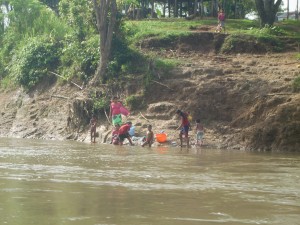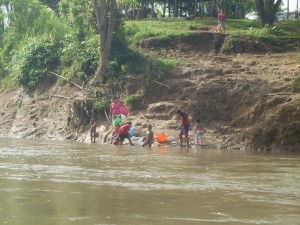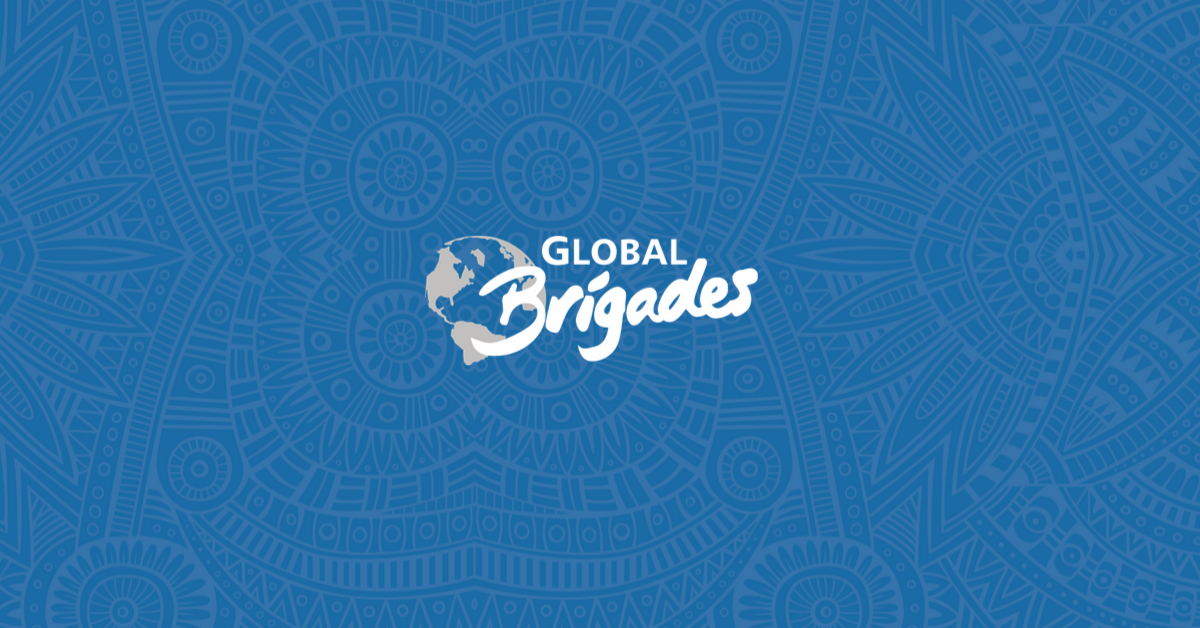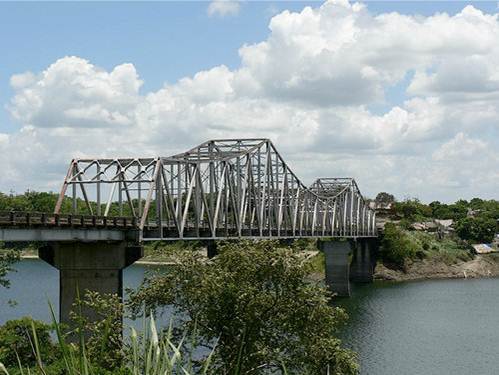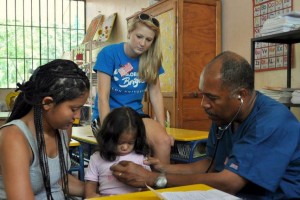Have you ever counted the number of times you turn on a faucet and flush a toilet in a day without even thinking about it? What about showers and stoves? Most of us are probably guilty of not truly appreciating how much these simple luxuries have transformed our daily lives and we definitely don’t think about the huge systems in place that keep these appliances operating.
In the rural communities of Panama, adequate water access and disposal of waste is still a daily challenge that is continually affecting the health and livelihood of families and especially children. If you have ever been on a brigade to Panama or even more specifically a Medical Brigade you probably asked yourself, “Why doesn’t Panama have a Public Health brigade program?”. This has been one of the most important questions being asked by brigaders since we first started working in Eastern Panama. The need for the program is visible and as an organization with a holistic approach to development it was a clear next step for our team to start the program.
This initiative, however, is a substantial undertaking because it not only takes additional funding and staff, but our team must also have the reassurance that chapter presidents across our GB countries will be able to recruit volunteers who are passionate about this cause. Without the support of our chapter presidents and brigaders, we would not be able to carry out these high-need development projects. Now, after nearly 7 months of information gathering, preparation and working with GB Campus Chairpersons, GB Panama is excited to announce that we will be begin working with Public Health brigades in January 2013 and chapter presidents everywhere can begin mobilizing volunteers. Through this program, we will be working to improve the health and quality of life of impoverished Latino and indigenous communities in one of Panama´s most poverty-stricken regions.
Below you will find background on the program and next steps for being one of the first Public Health chapters in Panama:
GB Panama has been experiencing many changes and successes in the past year. One of the most exciting days was when our team decided to officially move forward with the research process for investigating the needs for a Public Health program in Panama. It was truly a success because the team was able to allocate funds to this initiative early on to ensure that proper research and preparation was being conducted before deciding to launch the program. It was obvious to our students and staff it was a need, but we needed to have our experts on the ground gather the data and put together a thoughtful proposal for the Public Health program in Panama.
The first step was to find someone with knowledge and experience in this area; however, it was even more important to identify someone who understood the communities and their cultural beliefs which greatly impacts the success of potential home infrastructure projects. Our team was very fortunate to have met Mateo Johnson about a year ago, who was at the time working as a Regional Coordinator in Darien and managing 30 volunteers throughout the area. He was working on environmental health and water projects with various volunteers and had already been living out in the region for three years. Mateo has immersed himself completely into the culture and even speaks with a local “campesino” accent. Families know and respect him for his past work and now consider him a part of their communities. For Global Brigades, Mateo was really the best candidate to take on the role of developing a brand new program in Panama. Ariel Reyes, a former GB Campus Chairperson of UC Riverside and born in Honduras, is also joining the team as the Public Health Program Developer and Program Advisor. Ariel has had experience in Public Health brigades in Honduras and has worked on Medical Brigades in Panama. He will not only play a key role in developing the program, but he will also be the main contact for all chapter presidents planning their brigade to Panama. We are very excited for Mateo and Ariel to work together this year along with local tecnicians and staff!
Throughout the initial research process, making the case for this program has not been challenging, but rather a very enlightening and informative process. The statistics are staggering: known as the “Forgotten Province”, the greater Darien region suffers from high rates of poverty: 68% of the population lives in poverty, and 33% live in extreme poverty (living on less than $1.25 a day). Because of this and little infrastructure investment, the eastern region of Panama suffers from disproportionate but preventable health problems. By focusing on empowering families to better their most basic problems, the Public Health Program aims to positively affect all areas of life.
During a visit to any average family, it is apparent that the latrines and showers are either non-existent or in poor condition. Floors are made of dirt or partially cracking cement. During the rainy season, sewage water surrounds the home. Gastrointestinal conditions, like diarrhea and intestinal parasites, affect livelihood, and in children, education because of missed days of school. Potable water, seen as a right in our developed world, is not guaranteed in the communities we work in. Without water near the household, much time and effort are dedicated daily to carrying this heavy but vital liquid.
Brigaders will have the opportunity to improve the health infrastructure of the individual families we will be working with through various components of the program. One such project, which has already been piloted, is the compost latrine. Commonly used pit latrines fill with water in this high water table environment, contaminating ground water and facilitating fecal contact. Because of these problems, many households forgo latrines, spawning even worse public health implications. A proven elegant solution for rural communities with added agricultural benefits is the compost latrine.
In addition, the team is working on developing improved small-scale water storage systems using rainwater and sand filters, redesigning “greywater” drainage, and doing studies on efficient stove technology. If you have any potential project ideas, let us know!
These relatively small projects can have a big impact on preventative health, particularly in this recently settled region that has poor medical care and a dearth of doctors. Of course, brigaders will be educating the population on a variety of relevant health issues to both adults and students, to create awareness and knowledge that has traditionally not been imparted to the people. On top of these issues, PHB will also work with communities to better agriculture and hygiene. Working directly with locally formed committees we want to assure that our solutions are culturally sensitive and sustainable.
Our team has thus far gone into several villages and set up community committees to create a sustainable team of people dedicated to bettering the health of individuals, families, and the community as a whole. We have been promoting the composting latrine in one community and the results have been dramatic: we now have a list of 40 households that are interested in adopting this eco-friendly and healthier technology by showing people that they can have a more efficient, permanent, and clean excreta disposal system.
The team will continue to gather further information to develop the program and is also working daily in the communities to ensure they are properly prepared for the programs. Now is the time to start planning your part!
If you are interested in starting a new chapter or planning a brigade to Panama starting January 2013 or simply finding out more, please email Ariel Reyes at ariel.reyes@globalbrigades.org. Provide your name, university name, dates of interest and phone number. We hope to see you in Panama soon!

